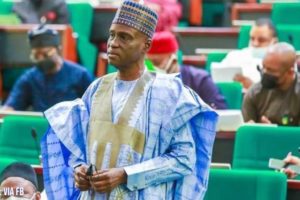Minister of Finance, Wale Edun, disclosed that the government has allocated a substantial N3.5 billion to support the Consumers Credit Scheme. This initiative has reached 11,000 beneficiaries within a short period, aiming to empower Nigerian workers by providing affordable credit solutions. The scheme allows beneficiaries to pay for essential goods over time, including crucial items such as Compressed Natural Gas (CNG) conversion kits for vehicles.
This scheme is part of the government’s broader strategy to ease financial burdens on workers by offering consumer credit options, making essential goods more accessible. By enabling Nigerians to pay over time, the government aims to alleviate immediate cash flow pressures, supporting both economic resilience and household budgets. This allocation marks a significant step toward enhancing consumer purchasing power across the country.
Minister Wale Edun: Student Loan Scheme Supports 500,000 Students with N90 Billion Disbursement
The government has also made remarkable strides in higher education accessibility through its Student Loan Scheme. To date, this initiative has reached over 500,000 students, with a total disbursement of N90 billion. According to Minister Wale Edun, these funds are directed both to educational institutions for tuition fees and to students for their upkeep, marking a robust commitment to facilitating higher education access. The interest-free loans are structured to lessen the financial strain on students and their families.
This scheme provides a vital lifeline for students who may otherwise be unable to pursue tertiary education due to financial constraints. By covering tuition and personal upkeep costs, the initiative fosters educational advancement while supporting the nation’s long-term economic growth. This move is part of a wider effort to enhance human capital development and equip Nigeria’s youth for future employment opportunities.
Minister Wale Edun: Interest-Free Loans Remove Financial Barriers for Nigerian Students
The interest-free nature of the Student Loan Scheme is a notable aspect that distinguishes it from other loan programs. By eliminating interest, the government reduces the overall debt burden on students, making it easier for them to focus on their studies and complete their education without accruing significant financial obligations. This initiative, in turn, encourages more students from lower-income families to seek higher education, enhancing social mobility and economic inclusivity.
As more Nigerian students access this scheme, the country can expect a greater number of skilled graduates entering the workforce. The government’s approach not only eases immediate financial pressures but also fosters a culture of academic achievement and ambition. This is anticipated to have a long-term positive impact on Nigeria’s socio-economic fabric, helping to break the cycle of poverty for many families.
Minister Wale Edun: Consumers Credit Scheme Aims to Improve Worker Livelihoods
The Consumers Credit Scheme is designed to make various goods and services more affordable to Nigerian workers. With 11,000 beneficiaries receiving N3.5 billion so far, this program offers a pathway for workers to enhance their living standards by enabling deferred payments on critical items. A standout feature is the scheme’s inclusion of CNG conversion kits, empowering citizens to switch to cheaper, eco-friendly fuel options amidst rising energy costs.
This financial initiative represents the government’s dedication to supporting everyday Nigerians, especially those with limited disposable income. By enabling workers to access consumer credit, the program not only promotes personal economic stability but also contributes to broader economic growth. Through affordable and accessible financing, the government strives to create a supportive financial environment for all citizens.
Impact of the Government’s Financial Schemes on Nigerian Economy
These two financial initiatives reflect the government’s focus on targeted economic support. By investing in both the Student Loan Scheme and the Consumers Credit Scheme, the administration aims to simultaneously boost education and support consumer spending, two key pillars for sustainable economic growth. The Student Loan Scheme develops the nation’s human capital, while the Consumers Credit Scheme addresses the immediate financial needs of workers.
This dual approach underlines the government’s commitment to holistic economic development, balancing long-term educational investments with short-term consumer support. As more Nigerians benefit from these programs, the economy is expected to gain from a better-educated workforce and increased consumer spending, both of which are essential for a robust, resilient economy.
Future Prospects and Expansion Plans for Financial Support Programs
The successful rollout of these financial initiatives suggests that the government may consider expanding the scope and reach of both programs. With increasing demand for accessible credit and student loans, there is potential for the government to widen the number of beneficiaries, particularly in underserved communities. Minister Wale Edun hinted that future allocations could be adjusted to meet rising needs, ensuring more Nigerians can benefit from these schemes.
these programs could become models for additional financial support initiatives, addressing areas such as small business financing and housing assistance. By continually adapting and expanding financial support, the government aims to establish an inclusive economy that empowers its citizens, bridging gaps in access to education, goods, and services across Nigeria.
Table of Contents
Discover more from OGM News NG
Subscribe to get the latest posts sent to your email.














